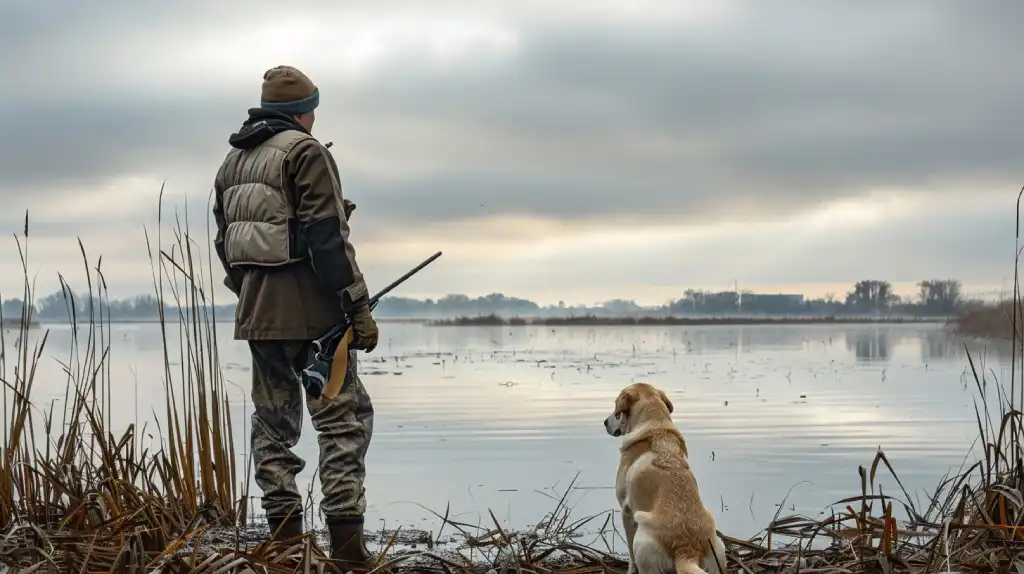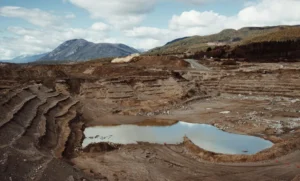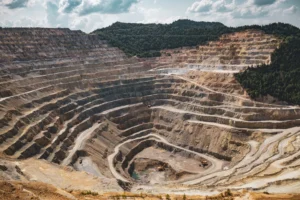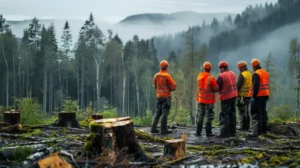
Game conservation laws regulate hunting to protect wildlife.These laws are the backbone of ethical hunting, guiding hunters to operate responsibly while ensuring sustainable wildlife populations thrive for generations to come. These regulations cover everything from setting hunting seasons and establishing bag limits to defining acceptable hunting practices and managing endangered species.
For hunters, these laws might seem like a double-edged sword—limiting in some ways but foundational in creating an environment where hunting can coexist with wildlife management. Let’s look into what game conservation laws are, why they exist, and how they shape the hunting landscape.
Game Conservation Laws and Hunting
Game conservation laws have fundamentally changed the way we approach hunting in the 21st century. Today’s wildlife populations thrive largely because of carefully crafted hunting regulations that balance preservation with sporting traditions. These vital game laws and hunters’ compliance with them have become the keystone of sustainable wildlife management across North America.
The Basics of Game Conservation Laws


At their core, game conservation laws aim to balance human activity with nature’s needs. They act as protective barriers, ensuring that ecosystems maintain their delicate balance. Key elements of these laws include:
- Hunting Seasons: These define when specific species can be hunted, often avoiding critical periods like mating or nesting seasons.
- Bag Limits: Restrictions on how many animals a hunter can harvest in a day or season, preventing overexploitation.
- Hunting Methods: Mandating ethical and sustainable techniques, such as approved weapons, and fair chase principles.
- Protected Species Lists: Shielding vulnerable or endangered species from any form of harvesting.
- Licensing and Permits: Ensuring only trained, licensed hunters partake in regulated hunting activities, supporting wildlife management financially through fees.
These guidelines aren’t just formalities—they’re investments in the future of sustainable hunting.
The Science Behind Game Conservation Rules
Modern game conservation laws are built on decades of research into wildlife populations and their habitats. Wildlife management experts carefully analyze:
- Population dynamics and breeding patterns
- Habitat carrying capacity
- Impact of hunting practices on species survival
- Environmental factors affecting wildlife populations
- Effectiveness of current hunting regulations
This scientific approach ensures that hunting seasons and bag limits are set at sustainable levels, allowing wildlife populations to maintain healthy numbers while still providing recreational opportunities.
How Do Game Conservation Laws Affect Hunters?
Key Components

Seasonal Restrictions
One of the most fundamental aspects of game conservation laws is the establishment of hunting seasons. These carefully timed windows for hunting practices ensure that wildlife populations can reproduce and raise their young without disturbance. Different species have different hunting seasons based on their breeding cycles, population numbers, and other ecological factors.
Licensing and Education Requirements
Modern hunting regulations require hunters to:
- Complete mandatory safety education
- Purchase appropriate licenses and permits
- Understand and follow specific game laws and hunters’ responsibilities
- Report their harvest data to support wildlife management efforts
Bag Limits and Harvest Restrictions
Game conservation laws establish strict limits on:
- Daily and seasonal harvest numbers
- Species and sex of animals that can be taken
- Hunting methods and equipment
- Areas where hunting practices are permitted
These restrictions help maintain stable wildlife populations while ensuring fair distribution of hunting opportunities.
The Economic Impact of Conservation
The implementation of game conservation laws has created a strong funding mechanism for wildlife management through:
- License and permit fees
- Special tags and stamps
- Equipment taxes
- Conservation organization contributions
These funds directly support:
- Habitat restoration projects
- Wildlife population surveys
- Law enforcement efforts
- Research initiatives
- Public education programs
Positive Impacts of Game Conservation Laws on Hunters

While the phrase “game conservation laws” may seem restrictive to some hunters, they often contribute to a better hunting experience in unexpected ways. They support the preservation of wildlife populations, improve hunter safety, and ensure that hunting remains a viable tradition. Here’s how these laws create opportunities for ethical hunters:
Sustainable Wildlife Populations
By enforcing clear hunting regulations, these laws ensure that hunters engage in practices that don’t threaten wildlife populations. For instance, sticking to hunting seasons prevents the depletion of species during sensitive times, allowing populations to rebound.
Hunting for Conservation
The success stories written by game conservation laws read like nature’s own comeback tales. Consider the white-tailed deer, whose numbers once decreased to concerning levels. Through carefully crafted hunting regulations and wildlife management strategies, these magnificent creatures now thrive in balanced numbers across their range. This success stems from:
- Carefully planned hunting seasons that protect breeding cycles
- Science-based hunting practices that ensure sustainable harvest
- Collaborative wildlife management approaches involving multiple stakeholders
- Hunter-funded conservation programs that protect critical habitats
Enhancing Safety
Education and training are essential aspects of modern hunting. Most hunting regulations mandate hunter safety courses, ensuring participants are skilled in firearm handling and ethical decision-making. These measures reduce accidents and promote a respectful, safe environment for all hunters.
Enhanced Hunting Opportunities
Contrary to what some might expect, game conservation laws have actually expanded the horizons for hunting practices. Picture a calendar year filled with diverse opportunities:
- Spring turkey seasons awakening with the first warm breezes
- Summer varmint hunting under clear skies
- Fall big game seasons painted in autumn colors
- Winter waterfowl hunts across frost-covered marshlands
Better Hunting Outcomes
Ironically, the restrictions imposed by game conservation laws often result in richer experiences for hunters. By maintaining balanced wildlife populations, these laws ensure that species are abundant, leading to more rewarding hunts. Also, managed habitats provide healthy ecosystems where game can thrive, giving hunters more opportunities for success.
Funding Wildlife Management
Every hunting license and permit sold contributes to conservation efforts. This funding supports habitat restoration, wildlife management, and research initiatives. Hunters, through their compliance, play a direct role in preserving the very species they pursue.
Hunters and Conservation
The interaction between game conservation laws and hunters is mutually beneficial. Hunters are not just participants in the outdoors but stewards of nature, directly contributing to the preservation of ecosystems and helping the goals of wildlife conservation. Ethical hunting, supported by strong game conservation laws, is essential for sustaining biodiversity.
Hunters play a crucial role in wildlife conservation by following game conservation laws and practicing ethical hunting. They help maintain healthy wildlife populations, support conservation efforts, and generate revenue for wildlife management.
To fully appreciate the impact of these laws, hunters can:
- Engage with Conservation Efforts: Many hunters volunteer in habitat restoration and species monitoring programs, furthering conservation goals.
- Educate the Public: Sharing stories of ethical hunting and its benefits can shift perceptions and garner support for sustainable practices.
- Advocate for Balanced Policies: Open dialogue with regulatory bodies ensures that conservation laws consider the needs of both wildlife populations and the hunting community.
Challenges For Hunters Under Game Conservation Laws

No regulation comes without its drawbacks. While game conservation laws aim to protect and manage wildlife populations, hunters often encounter challenges that can feel restrictive or frustrating. Understanding these challenges can help promote a dialogue between conservation authorities and the hunting community.
Restricted Access to Hunting Grounds
Urbanization and development have steadily reduced available hunting areas. Conservation laws further limit access to certain zones, particularly when habitats are being restored or species are protected. For hunters, this means fewer options and often more competition for prime locations.
Seasonal and Bag Limit Constraints
Strictly regulated hunting seasons and bag limits are vital for maintaining wildlife populations, but they can also frustrate hunters who feel constrained by these rules. While these restrictions are necessary, they require hunters to adapt and plan thoroughly to make the most of limited opportunities.
Permit Competition
In many regions, hunting licenses are allocated through lotteries or preference systems, making it challenging to secure a permit for popular species or areas. This process, while fair in theory, often leaves many hunters without the opportunity to participate.
Public Misconceptions
Perhaps the most significant hurdle hunters face is public perception. Hunting is often misunderstood, with critics overlooking its role in conservation and wildlife management. Hunters frequently find themselves defending their practices against stereotypes and misconceptions.
Managing Modern Pressures
Today’s game conservation laws must navigate a landscape far different from the past. Imagine the complexity of managing wildlife populations in a world where:
- Urban sprawl creeps into traditional hunting grounds
- Modern technology challenges traditional hunting practices
- Climate changes affect wildlife movement patterns
- Hunting seasons must adapt to shifting migration timelines
Balancing Different Interests
Like a delicate ecosystem, wildlife management agencies must maintain balance among various stakeholders:
- Traditional hunters seeking to preserve their heritage
- Conservation groups advocating for wildlife populations
- Landowners managing their property rights
- Public safety concerns in increasingly populated areas
- Scientific research guiding hunting regulations
Success Stories in Wildlife Management
The implementation of game conservation laws has led to remarkable changes in our natural landscapes. Take, for example, the revival of the Rocky Mountain Elk in states such as Colorado and Montana. Through carefully structured hunting regulations and dedicated wildlife management programs, elk populations have grown from near extinction to thriving numbers that support both conservation goals and sustainable hunting practices.
Measurable Benefits of Modern Conservation
The positive effects of game conservation laws can be seen across multiple dimensions:
Habitat Restoration
Picture vast wetlands overflowing with waterfowl, restored prairies buzzing with upland game birds, and refreshed forests hosting healthy deer populations. These scenes, once threatened by unregulated hunting practices, now flourish under modern hunting regulations and wildlife management strategies.
Population Recovery
Consider Wild Turkey’s remarkable comeback story. Thanks to carefully planned hunting seasons and progressive game conservation laws, these magnificent birds have returned to areas where they hadn’t been seen in generations. Today’s wildlife populations benefit from:
- Scientifically determined harvest limits
- Protected breeding periods
- Habitat conservation initiatives
- Regulated hunting practices
The Future of Conservation and Hunting
Emerging Trends in Game Conservation Laws
Picture a future where hunting practices smoothly integrate with modern conservation science. Today’s game conservation laws are already embracing:
- Digital licensing systems that simplify compliance
- Real-time wildlife population monitoring informing hunting regulations
- Adaptive management strategies responding to changing conditions
- Enhanced hunter education programs ensuring ethical practices
Technology and Conservation
Modern technology is reforming how game conservation laws are implemented. Picture a hunter using:
- GPS tracking to stay within designated hunting areas
- Mobile apps providing instant access to hunting regulations
- Digital harvest reporting systems supporting wildlife management
- Remote cameras monitoring wildlife populations in real-time
The Bottom Line
So, how do game conservation laws affect hunters? They present both opportunities and challenges, promoting sustainable hunting practices while imposing necessary restrictions. These laws protect wildlife populations, enhance ecosystems, and secure the future of hunting as a respected tradition.
The relationship between game conservation laws and hunting practices continues to evolve, creating a model of sustainable wildlife management that benefits all stakeholders. While hunters may face more complex regulations than their predecessors, these rules ensure:
- Healthy wildlife populations for future
- Sustainable hunting practices
- Effective wildlife management strategies
- Protected natural habitats
The success of game conservation laws depends on this continued collaboration, ensuring that both wildlife populations and hunting traditions thrive for generations to come. Whether you’re a seasoned hunter or new to the field, understanding and supporting these conservation efforts is crucial for the future of both wildlife and hunting practices.
FAQ's
How did game conservation laws affect hunters?
Game conservation laws affected hunters by restricting hunting seasons, regulating methods and equipment, imposing licensing, and promoting ethical practices.
Do hunters care about conservation?
Many hunters care about conservation and support habitat restoration, research, funding, and strong policies.
Many countries have laws that regulate hunting, including restricting hunting to specific times of year. Why is this hunting restriction important for preserving certain animal populations?
Restricting hunting during specific times protects vulnerable populations, ensures long-term sustainability, and prevents overharvesting.
What is the relationship between hunting and conservation?
Hunting, when managed responsibly, can control populations, generate revenue, and promote ethical outdoor recreation.
How do game conservation laws affect hunters? by establishing safety guidelines by ensuring adequate funding for wildlife programs by limiting hunting methods and equipment by allowing persons to hunt during nesting seasons
Game conservation laws affect hunters by establishing safety guidelines and ensuring enough funding for wildlife programs.




